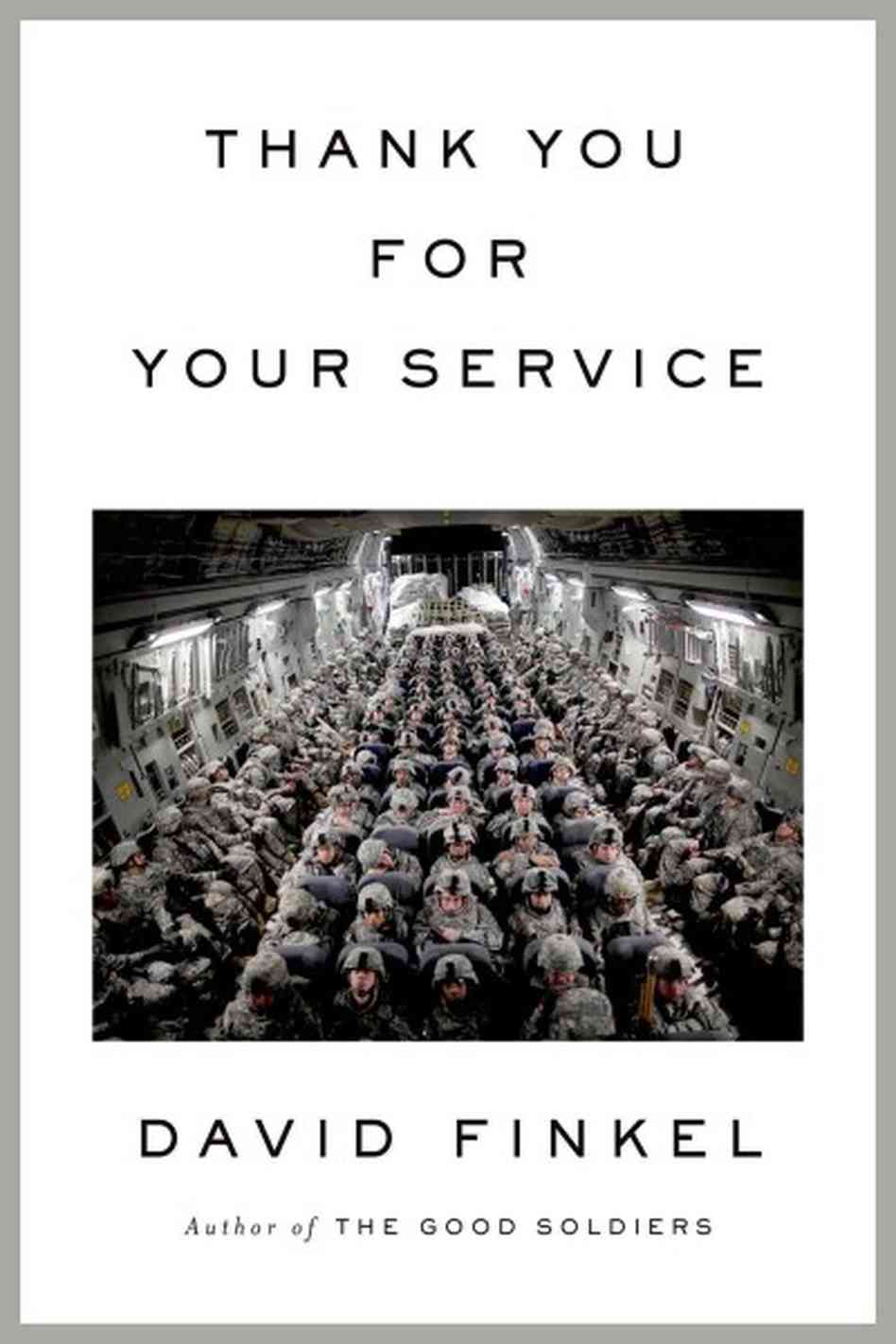
As we get ready for Thanksgiving, it should also be time to give thanks to the veterans who sacrifice for us. Yes, I know Veterans Day is supposed to cover that, but Thanksgiving is another opportunity to express our gratitude to our veterans. And, if you aren’t aware of what veterans face returning from Active Service to Civilian Life, David Finkel’s Thank You For Your Service shows the struggles our service men and women have to contend with.
He was shot in the head and the bullet ruined the part of his brain that regulates such things as emotions and impulse control. It also left him partially paralyzed… he has no sensation on his left side. He can’t easily stand. He can’t move his left foot or toes. He can’t straighten his left arm. He can’t wiggle his left fingers. He can’t wink his left eye. (p. 92)
The wives of veterans deal with husbands with emotional and mental problems. Widows deal with crushing losses. I have a heightened appreciation for military veterans after reading Thank You For Your Service. MSNBC’s MORNING JOE picked David Finkel’s book for their Book Club. GRADE: A
Ahhh, the interior of a C-17 Globemaster III. I spent a lot of time in one of these. I can pick out the strap racks, the chain cubbies, the top net over the 463L pallet aft, and a bunch more. The seats along the side fold up, while the ones down the center are on pallets that can be unlocked and rolled off the plane. The side seats are just material (like canvas) on metal frames and uncomfortable as hell. With all that field gear on and riding for hours, it must be torture.
These last wars are taking a toll never experienced before. Where soldiers are being deployed time after time. It is too much to ask of anyone. I fear for their futures.
Bob,I thought you might relate to that photo. And, you’re right: it must be torture for those soldiers.
Patti, I never liked the idea of an all volunteer military. As you point out, there are too many deployments. The wives and families pay a terrible price, too.
I have a friend who grew up in what was then termed “the barrio” of east L.A. who always said the worst thing that happened to low-income communities like hers was the end of the draft. She said it used to be that teenage boys would do the typical petty crime stuff but once they did their two years in the military, they came home with maturity and purpose. She lamented the all-volunteer service for a variety if reasons–but primarily because without it so many directionless teenagers became directionless adults–a far more dangerous proposition. As for our endless wars and repeated tours of duty, my sister (a 25-year Air Force veteran) put it best: we have no idea what we’re doing to our service men and women…it may take another generation to see the damage we’ve done.
The draft was beneficial in many ways. It allowed people to serve their country and perhaps appreciate it more, taught skills, helped some mature, and kept the military with a good supply of people to do scut work. In my years working for the Air Force I saw increasing numbers of NCOs and fewer airmen for them to boss around. It was a very top heavy organization. Often there were four or five levels of command to oversee one person. Insane.
Exactly, Deb! I feel sorry for the long-term service men and women. Their sacrifices must take a dreadful toll on them and their families. Serving two-years for your country should be part of U.S. citizenship. It doesn’t have to be the military. AmeriCorps and the Peace Corps could be other options. And we would all be better for it.
Bob, we have a Dean for every five Professors. Talk about top-heavy!
Deb, it’s still called the Barrio, and barrio isn’t a non-PC term.
One problem with the draft in the 1960s was the seeming unfairness of the system, with some people (ahem, Dick Cheney) getting five deferments while encouraging other people to go fight. At first married fathers were deferred. I know several people who went to graduate school of one kind or another to keep their student deferments. As some of you have heard, Jackie took an English class in college from snobby visiting Yale professor (and Joyce biographer) Richard Ellmann. He gave her a D but refused to give any boys lower than a C because (in his words) “they could go to Vietnam and you can’t.”
When they tried to make it fairer with a draft lottery in 1969 the screwed that up too. Insufficient mixing (or something) left November and December birth dates with a much higher proportion of low draft numbers than statistics would allow. For instance, my brother, born December 7, got #12. (November 24, lucky me, was #230.)
The draft expired in 1973. They really need to consider bringing it back in some form IMHO.
Jeff, I’m with you on bringing the Draft back. Most of my students would swap a 2-year stint for free College tuition.